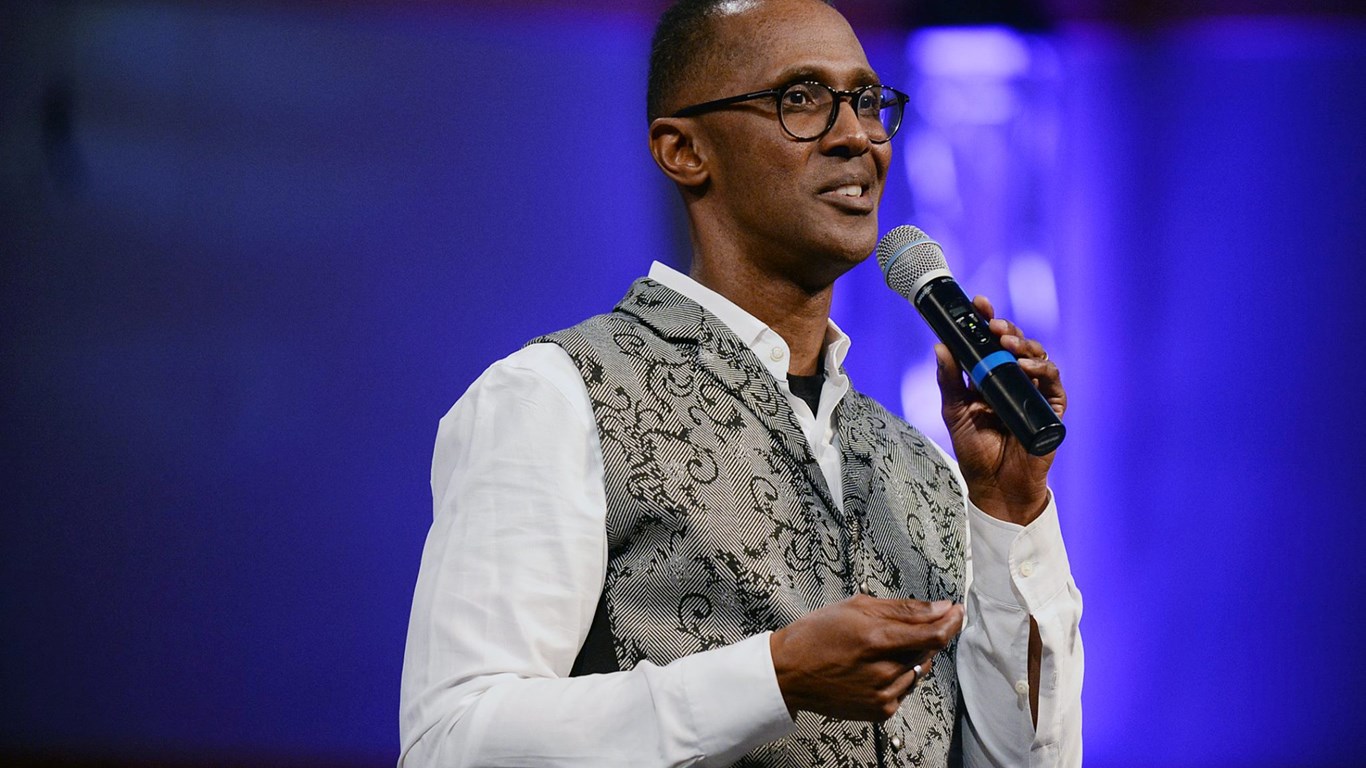
Support Christianity Today's culture, diversity, and innovation efforts
Give NowSupport Christianity Today's culture, diversity, and innovation efforts
Give NowLast year, Christianity Today board member Claude Alexander and his wife Kimberly were watching previews for new movies, while waiting for Inside Out to begin. A trailer for the upcoming Peanuts movie played.
"The narrator says, 'You'll see Charlie Brown. You'll see Linus, Sally, Shroeder, Pig Pen.' All the names, except one name: Franklin," Alexander, who leads the Park Church, in Charlotte, North Carolina, said as he addressed the Christianity Today staff earlier this year. "My wife and I gasped. How could everybody but Franklin be mentioned? In the sea of white characters, he's the only person of color and he is not mentioned."
Franklin was added to the Peanuts pantheon after the assassination of Martin Luther King Jr. in 1968, said Alexander. Cartoonist Charles Schultz introduced Franklin after receiving a letter from teacher Harriet Glickman following King's death.
"Dear Mr. Schulz," she wrote, "since the death of Martin Luther King, I've been asking myself what I can do to help change those conditions in our society which led to the assassination and which contribute to the vast sea of misunderstanding, hate, fear and violence." Glickman suggested that having a black character might serve the grieving and wounded country. (Read more.)
Alexander remembered the introduction of Franklin well.
"For a person of color, that was a dramatic thing to see yourself in a character that looked like you," said Alexander. "It was one of the few places actually."
Franklin was the only character who never gave Charlie Brown grief.
"Schultz did that by design, because Franklin would have known marginalization as well," said Alexander.
Franklin's omission from the trailer (his character appeared in the movie) didn't happen because the filmmakers were racist, said Alexander.
"No doubt, the creators had no malicious intent," he said. "They took joy in the Peanuts!"
But the fact that he had been left out suggested that the film's creators likely did not come from a background where Franklin had been cherished and valued in the same way. As a result, it had been easy for them to overlook him, without realizing the impact that his absence would have from the trailer for viewers of color.
These historical and cultural blind spots can have serious repercussions.
In the case of the evangelical movement its "failure … to embrace diversity from the beginning severely compromised the integrity of its proclamation," Alexander told Christianity Today later. "It set an opening for people to dismiss the sincerity and validity of its claims about Christ due to its omission, and in some cases, its intentional exclusion of whole populations of believers."
One step that CT has taken to intentionally correct this has been to launch the Culture, Diversity, and Innovation (CDI) taskforce, a group of staff charged with fostering an organizational culture that attracts and retains a workforce that represents the North American church. Through interviewing past employees and educating current ones, the taskforce hopes to foster a culture within CT that creates content that can speak to 21st century Christians with cultural sensitivity and relevance.
Led by Andy Crouch, Alexander's presence at Christianity Today was part of a CDI initiative that has invited the ministry's four board members of color to speak to staff in 2016. Azusa Pacific University vice president Annie Tsai, North Carolina pastor Darryl King and National Hispanic Christian Leadership Conference president Samuel Rodriguez are slated to visit with staff later this summer.
How might Alexander measure the CDI and Christianity Today's success?
"A diverse Christianity Today would be one wherein the extravagantly diverse tapestry of evangelical thought and expression is reflected in those who staff CT, those who produce content for CT, and in those who read CT. It is one where, together, we are able to better apprehend the complete measure and fullness of the Christ who saves us all," said Alexander.
Christianity Today's current efforts are "helping to set a standard towards which others may aspire and by which others will be measured," said Alexander. "It's taking the lead in helping to answer Jesus' prayer in John 17:21, ‘...that all of them may be one, Father, just as you are in me and I am in you. May they also be in us so that the world may believe that you have sent me.’”
Morgan Lee is an assistant editor of Christianity Today.








